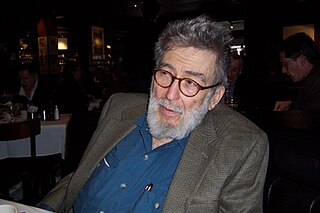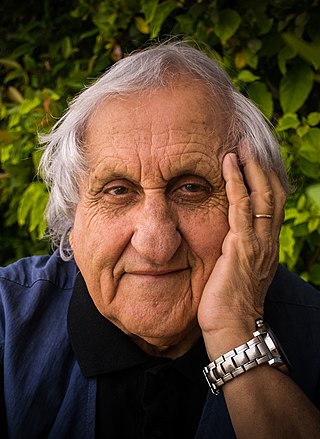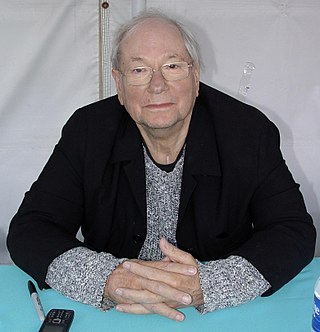Related Research Articles

Isaac Bashevis Singer was a Polish-born Jewish-American novelist, short-story writer, memoirist, essayist, and translator. Some of his works were adapted for the theater. He wrote and published first in Yiddish and later translated his own works into English with the help of editors and collaborators. He was awarded the Nobel Prize for Literature in 1978. A leading figure in the Yiddish literary movement, he was awarded two U.S. National Book Awards, one in Children's Literature for his memoir A Day of Pleasure: Stories of a Boy Growing Up in Warsaw (1970) and one in Fiction for his collection A Crown of Feathers and Other Stories (1974).

Shmuel Yosef Agnon was an Austro-Hungarian-born Israeli novelist, poet, and short-story writer. He was one of the central figures of modern Hebrew literature. In Hebrew, he is known by the acronym Shai Agnon. In English, his works are published under the name S. Y. Agnon.

Amos Oz was an Israeli writer, novelist, journalist, and intellectual. He was also a professor of Hebrew literature at Ben-Gurion University of the Negev. From 1967 onwards, Oz was a prominent advocate of a two-state solution to the Israeli–Palestinian conflict.

Nathan Irving Hentoff was an American historian, novelist, jazz and country music critic, and syndicated columnist for United Media. Hentoff was a columnist for The Village Voice from 1958 to 2009. Following his departure from The Village Voice, Hentoff became a senior fellow at the Cato Institute and continued writing his music column for The Wall Street Journal, which published his works until his death. He often wrote on First Amendment issues, vigorously defending the freedom of the press.

Herman Wouk was an American author who published fifteen novels, many being historical fiction such as The Caine Mutiny (1951) for which he won the Pulitzer Prize in fiction.

Aharon Appelfeld was an Israeli novelist and Holocaust survivor.

Avraham Gabriel "Boolie" Yehoshua was an Israeli novelist, essayist, and playwright. The New York Times called him the "Israeli Faulkner". Underlying themes in Yehoshua's work are Jewish identity, the tense relations with non-Jews, the conflict between the older and younger generations, and the clash between religion and politics.

Yoram Kaniuk was an Israeli writer, painter, journalist, and theatre critic.
Hillel Halkin is an American-born Israeli translator, biographer, literary critic, and novelist who has lived in Israel since 1970.

The Jerusalem Report is a fortnightly print and online news magazine that covers political, military, economic, religious and cultural issues in Israel, the Middle East, and the Jewish world.

Yad Kennedy, located in the Mateh Yehuda Region near Jerusalem, is a memorial to John F. Kennedy, the 35th President of the United States, who was assassinated in Dallas, Texas in 1963. The 60-foot high (18 m) memorial is shaped like the stump of a felled tree, symbolizing a life cut short. Inside is a bronze relief of Kennedy, with an eternal flame burning in the center. It is encircled by 51 concrete columns, one for each of the 50 states in the United States plus one for Washington, D.C., the United States capital. The emblems of the states are displayed on each of the columns, and the columns are separated by slim panels of glass. The monument measures approximately 250 feet (76 m) in circumference around its base, and there is space within the memorial for approximately 100 visitors at a time. The monument was built in 1966 with funds donated by American Jewish communities.
Joseph Berger is an American journalist, author, and speaker. He was a staff reporter and editor for The New York Times from 1984 to 2014 and has authored four books.

Naomi Ragen is an American-Israeli modern-Orthodox Jewish author and playwright. Ragen lives in Jerusalem, and writes in English. A recurring theme in her fictional works is injustice against women in the Haredi Jewish community. Ragen has been the subject of various lawsuits over claims of plagiarism.
Shalom (Seymour) Freedman is an American-Israeli writer, thinker, and poet. As a Jewish writer, his best-known work consists of conversations with thinkers and spiritual leaders centering on the concept of Avodat Hashem or service of God. As a public intellectual, his work has touched on a wide variety of issues regarding the human condition and future while focusing most urgently on Israel’s struggle for survival and wellbeing.
Lilly Rivlin is an American- Israeli journalist, writer, and filmmaker in the genre of documentary/ political films on women's issues.

David Resnick was a Brazilian-born Israeli architect and town planner whose awards include the Israel Prize in architecture and the Rechter Prize. Resnick, whose name is sometimes spelled in English as "Reznik" or "Reznick," is a past director of the Israeli Architects Association, and is known as one of Israel's "most celebrated modern architects".
Denis Brian was a Welsh journalist and writer, notable for writing the 1996 biography Einstein: A Life.

Elliot Jager is an American-born Israeli journalist, political scientist, and author of The Pater: My Father, My Judaism, My Childlessness. He is a former editor at The Jerusalem Post and a former senior contributing editor at The Jerusalem Report. His second book, The Balfour Declaration: Sixty-Seven Words—100 Years of Conflict, was published in 2017.

Agron House is a landmark in downtown Jerusalem. Constructed in memory of Gershon Agron, it has housed various Israeli national institutions in pursuit of the arts. It is located at 37 Hillel Street.
References
- ↑ Elliot Resnick (July 24, 2013). "'Everybody's Award That Israel's Power Is Growing': An Interview With Writer P. David Hornik". The Jewish Press . Retrieved August 24, 2013.
- ↑ "P. David Hornik". The American Spectator.
- 1 2 Edward Alexander (April 25, 2013). "Choosing Life in Israel, by P. David Hornik (Review)". Algemeiner Journal . Retrieved August 24, 2013.
- ↑ Elliot Resnick. "The Jewish Press » » 'Everybody's Aware That Israel's Power Is Growing': An Interview with Writer P. David Hornik". The Jewish Press.
- ↑ "P. David Hornik". The American Spectator. The American Spectator. Retrieved February 24, 2015.
- ↑ Ruth King (April 3, 2013). "Book Review: Choosing Life in Israel". Jewish Ledger . Retrieved August 24, 2013.